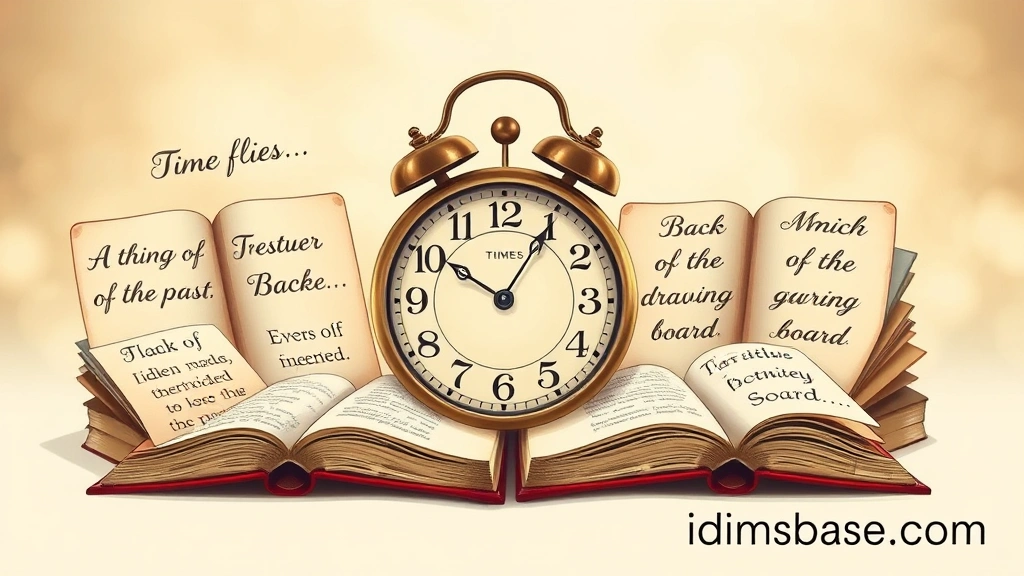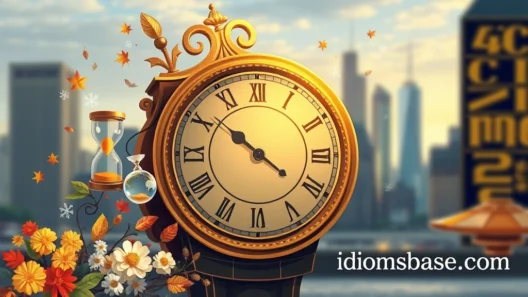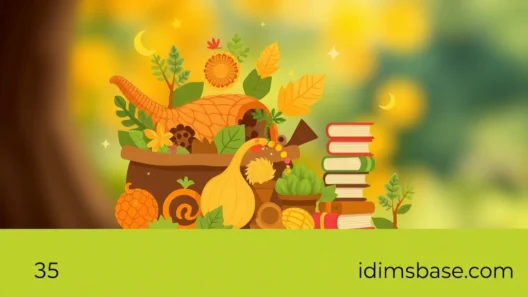Let's take a delightful journey back in time, shall we? You know, the past is a funny thing – it's gone, but it never really leaves us. It shapes who we are, influences our present, and often pops up in our conversations in the most colorful ways! English, being the rich and vibrant language it is, has a treasure trove of idioms that help us talk about bygone days. These aren't just fancy phrases; they're little nuggets of wisdom, history, and often, a dash of humor.
Ever wondered how to say "something happened a long, long time ago" without sounding, well, boring? Or how to describe a memory that keeps coming back? That's where idioms about the past come in handy! They add flavor, depth, and a touch of native flair to your language. Think of them as secret codes that unlock deeper understanding and connection. Ready to dive into a linguistic time machine? Let's explore 35 fantastic idioms that will make your English sparkle when you're talking about yesterday, last year, or even last century!
Unlocking the Past: 35 Fascinating Idioms
Here are 35 idioms that will help you master conversations about the past. Get ready to impress!
- A blast from the past: Oh, this one's a classic! It means something or someone that suddenly reminds you of a past time. Imagine bumping into an old school friend you haven't seen in decades – that's a true blast from the past!
- Back in the day: This is a wonderfully nostalgic phrase used to refer to a period in the past, usually when reminiscing. "Back in the day, we used to play outside until the streetlights came on." Ah, simpler times!
- Water under the bridge: This idiom suggests that past events, especially unpleasant ones, are over and done with and no longer important. It's about letting go. "We had our disagreements, but that's all water under the bridge now."
- History repeats itself: Ever feel like you've seen this movie before? This idiom means that similar events or patterns happen again and again over time. Let's hope the good stuff repeats, right?
- In the good old days: Similar to "back in the day," but with an added layer of fondness, implying that the past was better. Sometimes, nostalgia can paint a rosy picture!
- Live in the past: This describes someone who dwells on past events and finds it hard to move on or adapt to the present. It's important to reflect, but not get stuck!
- The sands of time: A poetic way to talk about the passage of time. Like sand slipping through an hourglass, time is constantly moving forward.
- Turn back the clock: If only we could! This means to return to an earlier time or situation. Often used when wishing things were different.
- A thing of the past: Something that no longer exists or happens. Remember landline phones? Definitely a thing of the past for many!
- Gone with the wind: Evoking images of sweeping change, this means something is completely gone and cannot be recovered.
- Over and done with: Simple, direct, and effective! It means something is completely finished and resolved.
- Old habits die hard: You know that stubborn habit you just can't shake? This idiom perfectly describes how difficult it is to change long-established behaviors.
- Memory lane: A figurative path you take when you think about past events and memories. "Let's take a stroll down memory lane."
- For old times' sake: Doing something because it reminds you of a pleasant time in the past. Perhaps revisiting an old haunt with friends.
- In days of yore: A very old-fashioned, almost fairy-tale way of saying "a long time ago." Adds a touch of whimsy!
- The past is a foreign country: This clever phrase means that the past is very different from the present, often in ways that are hard for us to fully understand.
- Look back in anger: To feel resentful or bitter about past events or decisions. Not a fun way to revisit history!
- Put the past behind you: To stop thinking about or being affected by past events, especially negative ones, and move on.
- History in the making: This refers to an event that is so significant that it will be remembered and studied in the future. You're witnessing something truly important!
- A ghost of a chance: A very small possibility. While not directly about the past, "ghost" implies something lingering or barely there, like a faint memory.
- The good old days are gone: A more melancholic version of "in the good old days," suggesting that things are not as good now as they once were.
- Lost in the mists of time: Something so old or obscure that its origins or details are no longer clear. Like ancient legends!
- To turn over a new leaf: This isn't just about the past, but about leaving negative past behaviors behind and starting fresh. A wonderful idiom for self-improvement!
- A walk down memory lane: Similar to "memory lane," it implies a pleasant recollection of past events.
- The die is cast: From Roman times! It means a decision has been made and cannot be changed, referring to a point of no return from the past.
- Once upon a time: The classic opening for fairy tales, signaling that a story from the past is about to begin.
- To sweep something under the rug: To hide a problem or an unpleasant past event rather than dealing with it. Not always the best long-term strategy!
- Buried in the past: Something that is forgotten or deliberately hidden from current knowledge.
- To let bygones be bygones: To forgive and forget past quarrels or offenses. A very healthy approach to moving forward!
- A distant memory: Something that happened a long time ago and is now only faintly remembered.
- In retrospect: When thinking about a past event or situation, often with the benefit of hindsight. "In retrospect, I should have taken that job."
- A fading memory: A memory that is becoming less clear over time. It's like an old photograph losing its color.
- To rehash the past: To bring up and discuss old arguments or events repeatedly, often without finding a new resolution. Can be quite tiring!
- The sands of time are running out: This idiom implies that there is not much time left, often in a context where a past deadline is approaching or a situation is ending.
- To hark back to something: To remember or refer to something in the past. Often used when someone is constantly bringing up old stories.
Why Use Idioms About the Past?
You might be thinking, "Why bother with these quirky phrases?" Well, let me tell you, they are incredibly powerful!

- They make your language richer: Idioms add color and nuance that literal language often can't capture.
- They show cultural understanding: Using idioms correctly demonstrates a deeper grasp of English and its cultural context.
- They make you sound more natural: Native speakers use idioms all the time! Incorporating them helps you sound more fluent and less like you're translating directly from another language.
- They're fun! Seriously, isn't it satisfying to use a phrase like "a blast from the past" and see the understanding light up in someone's eyes?
Frequently Asked Questions About Idioms
Q1: What exactly is an idiom?
An idiom is a phrase or expression whose meaning can't be understood from the ordinary meanings of its words. It's a figurative saying, often unique to a particular language or culture. For example, "kick the bucket" doesn't literally mean to kick a bucket; it means to die.
Q2: Are idioms about the past used commonly in everyday conversation?
Absolutely! Many of the idioms listed, like "back in the day," "water under the bridge," and "a blast from the past," are very common in casual English conversation, news articles, and even formal writing.

Q3: How can I remember so many idioms?
Great question! The best way is through exposure and practice.
- Read widely: Notice idioms in books, articles, and online content.
- Listen actively: Pay attention to how native speakers use them in movies, TV shows, and podcasts.
- Practice using them: Try to incorporate one or two new idioms into your conversations or writing each week. Don't be afraid to make mistakes; that's how you learn!
- Context is key: Try to understand the situation in which an idiom is used, as this often helps its meaning stick.
Q4: Can I use these idioms in formal writing?
Some, yes, but others, not so much. Idioms like "in retrospect" or "history repeats itself" are generally fine in formal contexts. However, more casual ones like "back in the day" or "a blast from the past" are better suited for informal writing or conversations. Always consider your audience and the tone you want to convey.
Q5: Do idioms have different meanings in different English-speaking countries?
Sometimes! While many idioms are universally understood across English-speaking countries (like the ones on our list), some can have slight variations in meaning or usage, or even be unique to a specific region (e.g., British English vs. American English). If in doubt, a quick search can often clarify.
Key Takeaways
- Idioms about the past are colorful expressions that add depth and natural flair to your English.
- They help you describe historical events, memories, and the passage of time in vivid ways.
- Learning these idioms enhances your understanding of English culture and makes you sound more fluent.
- Practice using them in context, listen to native speakers, and don't be afraid to experiment to master these linguistic gems.
So, there you have it! A fantastic collection of idioms to help you navigate conversations about the past with confidence and style. Which one is your favorite? Do you have a "blast from the past" story you'd like to share? Dive into your memories and start using these wonderful phrases today! Your English journey is always moving forward, but it's fun to look back with the right words, isn't it?







